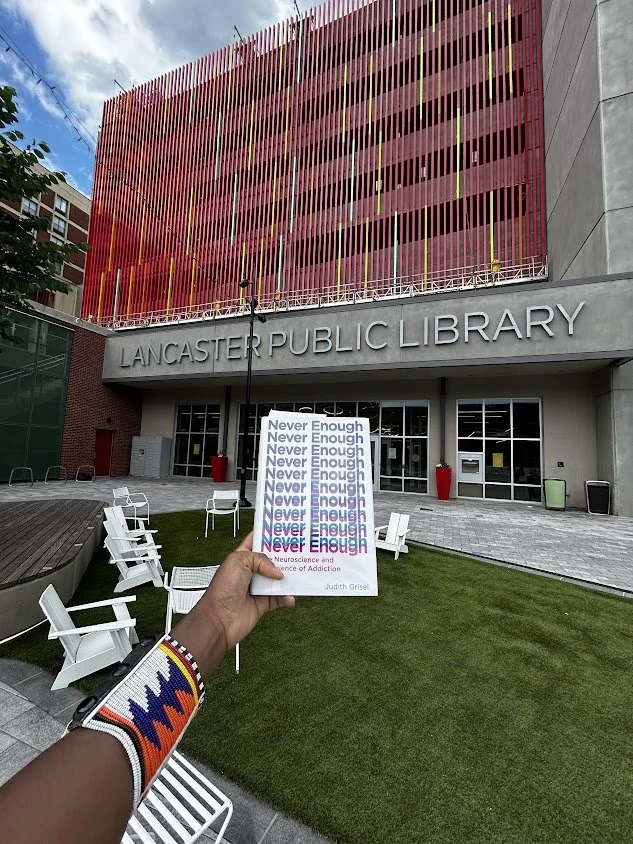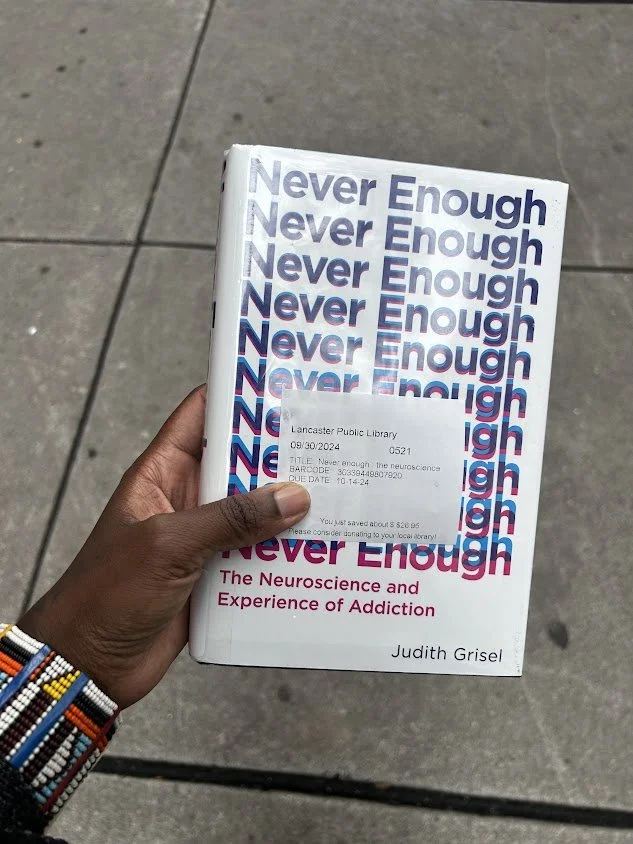Never Enough: The Neuroscience and Experience of Addiction by Judith Grisel, PhD
Loving the add-ons on the Lancaster Public Library exterior...borrowed Judith Grisel's Never Enough: The Neuroscience and Experience of Addiction - May 2024
Earlier in the Summer, when I was fresh off my semester of studying all things addiction and psychopathy, and doing an academic poster on US Laws and Pregnant women with substance use disorder, I got a book - Never Enough: The Neuroscience and Experience of Addiction by Judith Grisel, PhD - on addiction from the public library. I finished book, started drafting a post but Summer got in the way. I re-borrowed the book last week, and finally finished my post/review.
The book is written by Judith Grisel, PhD who is a professor, behavioral neuroscientist and has lived experience with addiction (she had her first drink at 13). She uses her journey to not only explain how addiction works in a practical sense, but also backs it all with science.
The title, Never Enough, summarizes her quest, and that of many others, to quench something in her, but the substances she used were NEVER ENOUGH, leading her to try a new substance, in different quantities, but it was NEVER ENOUGH!!! She talks about strained family relationships, the things she did and conditions she lived under just to maintain her lifestyle.
The book is not all gloom as she also talks about her recovery journey which is still ongoing tens of years later, and the quest to find ‘a cure for addiction’ that led her back to school, all the way to a doctoral program, and her work as a behavioral scientist.
Long live public libraries - September 2024
The book’s structure makes it accessible and intellectually engaging:
Chapter 1 is an introduction to her, and her work.
Chapter 2 takes a deep dive into how the brain works, touches on punishment and reinforcement, and why that is important in understanding addiction.
Chapter 3-9 are dedicated to the different classifications of substances – each classification has its own chapter. She weaves social, historical, empirical and personal narratives in each chapter as well as how the various substances affect the brain/body.
The second last chapter is dedicated to the author’s introspection. She highlights the things that made her vulnerable to addiction – biological disposition, exposure to substances, catalyzing environment and early start.
Finally, the last chapter explores how society can/should deal with addiction. The author points out that the solution goes beyond just looking at the brain.
She mentions that it is the drive to ‘escape from reality’ not the drugs/substance that makes one an addict (p 217), and that as a society, ‘we are suffering from depth deprivation, which is found most naturally in honest connections’ (p 220) – and that the best way forward is to reach for others. Additionally, she highlights that recovery is a process of expansion, not restriction (p 210).
When I become a professor, this book will be among the ‘understanding addiction’ books that I will recommend. It is not only engaging, but it does a very good job at outlining and illustrating the various types of substances, the occasions they are commonly used and their impact to the brain/body, and their alternative advantages (if used well and in controlled settings). Most of all it gives a simple and practical prevention strategy; compassion.


